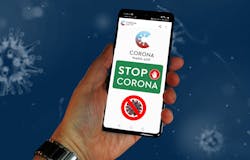New UCLA-led research indicates that simple text messages emphasizing the easy availability of COVID-19 vaccines successfully boosted the number of people who got the shot.
The researchers, from the David Geffen School of Medicine at UCLA, the UCLA Anderson School of Management and Carnegie Mellon University, say their findings held true across all demographics, including groups that have been hesitant to receive the vaccine.
“We found that text messages that stressed the accessibility of the vaccine and that included ‘ownership’ language — such as ‘The vaccine has just been made available for you’ and ‘Claim your dose today’ — significantly increased vaccine uptake,” said senior study author Daniel Croymans, Medical Director of Quality at UCLA Health.
For the study, published in the peer-reviewed journal Nature, the researchers analyzed data from two randomized, controlled trials conducted with UCLA Health patients, most over the age of 65, who were eligible for the COVID-19 vaccine in January and February 2021.
In the first trial, about 93,000 participants who had initially been notified by email, regular mail or phone of their eligibility for the vaccine either did not receive a follow-up text or received one of four types of messages: a simple text reminder, a reminder that included an informational video, a reminder with the above-mentioned ownership language, or a reminder with both ownership language and the video. All reminders included a direct link to a page allowing patients to schedule a vaccination appointment within the UCLA Health System, which was intended to reduce barriers for patients to take action.
The authors found that within six days of sending the reminders, appointment rates for those who had received the messages were nearly double what they were for those who had not (13.2% vs. 7.2%). And one month after the text reminders, vaccination rates were higher among patients who had received texts (17.6% vs. 13.9%). This approach was particularly effective with people who regularly scheduled a seasonal flu shot, and the benefits held even when researchers accounted for patients who obtained vaccinations outside the health system.
Text messages that included ownership language brought an additional boost in appointment and vaccination rates, the authors said. But adding the video yielded no detectable effect on patients’ behavior — few recipients even clicked on the link to view it.

